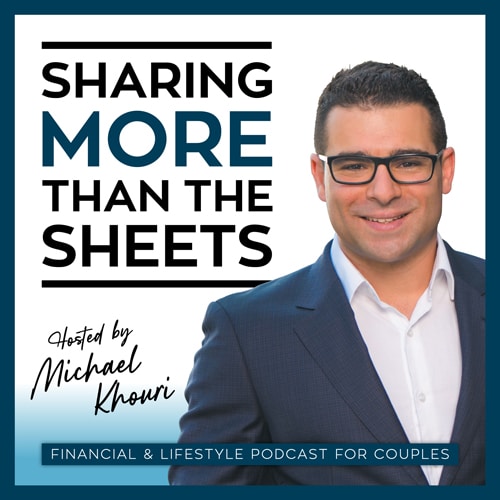Take outs
- Financial habits are developed by 7 years of age
- Financial capability is built through literacy, experience and behaviors
- Apps and online tools suit a generation born digital
Understanding earning, spending and saving is a key part of preparing kids for adult financial challenges. In the digital age, online tools and apps have a key role to play in creating savvy kids with bright financial futures.
Liz Phelan, Operation and Sales Lead for online financial education platform Banqer, recently presented a Netwealth webinar on Preparing children for their financial future.
Phelan discussed what research is telling us about our kids’ financial capability, when to start the financial education process, and how online tools at home and in the classroom help build money smart generations.
How do Aussie kids stack up?
As part of an OECD survey, almost 15,000 15-year old Australian students were tested on their financial literacy and its application. The survey looked at whether the students could apply their financial knowledge to manage real-life situations and make decisions about money. For example, students were asked to prioritize their spending by deciding if they should spend money on a movie ticket if it meant they didn’t have enough for the bus fare home.
Australian students scraped in above the average (489) with a mean score of 504. Phelan says our performance is worse than four years ago, when our mean score was 526.
“What’s really alarming is that the top score across OECD countries was only 566 out of 800,” she says. “With financial literacy directly related to future financial prospects, there’s clearly a lot of work to do to ensure the financial stability of our future generations.”
Literacy is just the start of financial capability
Financial literacy is key to kids learning about money, but it’s part of a bigger picture of developing financial capability.
“Financial literacy is the first rung on the ladder. Essentially the difference between financial literacy and financial capability is knowing we shouldn’t buy an expensive coffee every day and still doing it,” Phelan says.
“Literacy is foundational. We need that knowledge to make good decisions, but we must then be able to apply it and live with the outcomes whether they’re good, bad or ugly. From that experience we develop our attitudes and behavior, and the final outcome is our financial capability.”
When to start teaching kids about money
Research shows attitudes towards money and financial habits are set in place by 7 years of age, highlighting the need to start formal financial education as early as possible in the school curriculum.
“If we’re going to produce financially competent adults, financial education needs to be included as a key learning area in the curriculum,” says Phelan.
“By introducing financial concepts early, providing opportunities to apply their learning, and experience consequences of their decisions – these are crucial to kick-starting financial education.”
Connecting with kids born digital
Younger generations are born digital – they’ve always had Internet access and expect apps and online simulations as part of learning.
Phelan says free online tools like Banqer enable teachers to simulate financial experiences for students so they have a safe environment.
“Children might have a mock online bank account where they can earn, spend, save and invest. The teacher starts a basic economy, and as the kids learn more they unlock new concepts like tax, superannuation, personal loans and insurance.”
A solid foundation
Kids start to grasp the basic concepts of value and exchange from three years old. So it’s never too early to take advantage of their natural curiosity to explain what money is and why we need it.
“It’s vital to reinforce the importance of budgeting, saving, and good decision making. The more open and honest you can be with your kids the better; explain the nature of work and its relationship to your family life, and the reasons behind your financial choices so they see how those choices connect to what your family values.”
Phelan recommends some practical ways to keep teaching kids about money:
- try to use notes and coins regularly, instead of making all purchases on your credit card, to create the link between money and spending;
- draw up a spreadsheet of your household expenses to give kids a sense of your family budget;
- explain your money is kept in a personal account with the bank and when you tap your card that money is moved to the account of the business you’re buying from;
- start preschoolers off with a piggy bank with sections for spending, saving and sharing;
- introduce a family spending jar where everyone can contribute to save for a family event;
- let kids try out using a debit card with prepaid cards they top up with their savings.
“Creating opportunities for our kids to apply their knowledge is crucial to developing financial capability. Learning is often found in failure, so letting them miss out on the movies because they spent their pocket money early may be the smart parenting move,” she says.
“Understanding the consequences of their spending decisions helps build resilience, skills and connections.”
Wealthness Pty Ltd t/as Better Financial Planning Australia will endeavour to update the website as needed. However, information can change without notice and Wealthness Pty Ltd t/as Better Financial Planning Australia does not guarantee the accuracy of information on the website, including information provided by third parties, at any time.
This information is of a general nature only and neither represents nor is intended to be specific advice on any particular matter. Infocus Securities Australia Pty Ltd strongly suggests that no person should act specifically on the basis of the information contained herein but should seek appropriate professional advice based upon their own personal circumstances. Although we consider the sources for this material reliable, no warranty is given and no liability is accepted for any statement or opinion or for any error or omission.
Wealthness Pty Ltd t/as Better Financial Planning Australia does not give any warranty as to the accuracy, reliability or completeness of information which is contained in this website. Except insofar as any liability under statute cannot be excluded, Wealthness Pty Ltd t/as Better Financial Planning Australia and its employees do not accept any liability for any error or omission on this website or for any resulting loss or damage suffered by the recipient or any other person.
Wealthness Pty Ltd (ACN 613 313 250) [t/a Better Financial Planning Australia] Corporate Authorised Representative of Infocus Securities Australia Pty Ltd ABN 47 097 797 049 AFSL Licence No. 236523. Source: Netwealth Investments Limited



